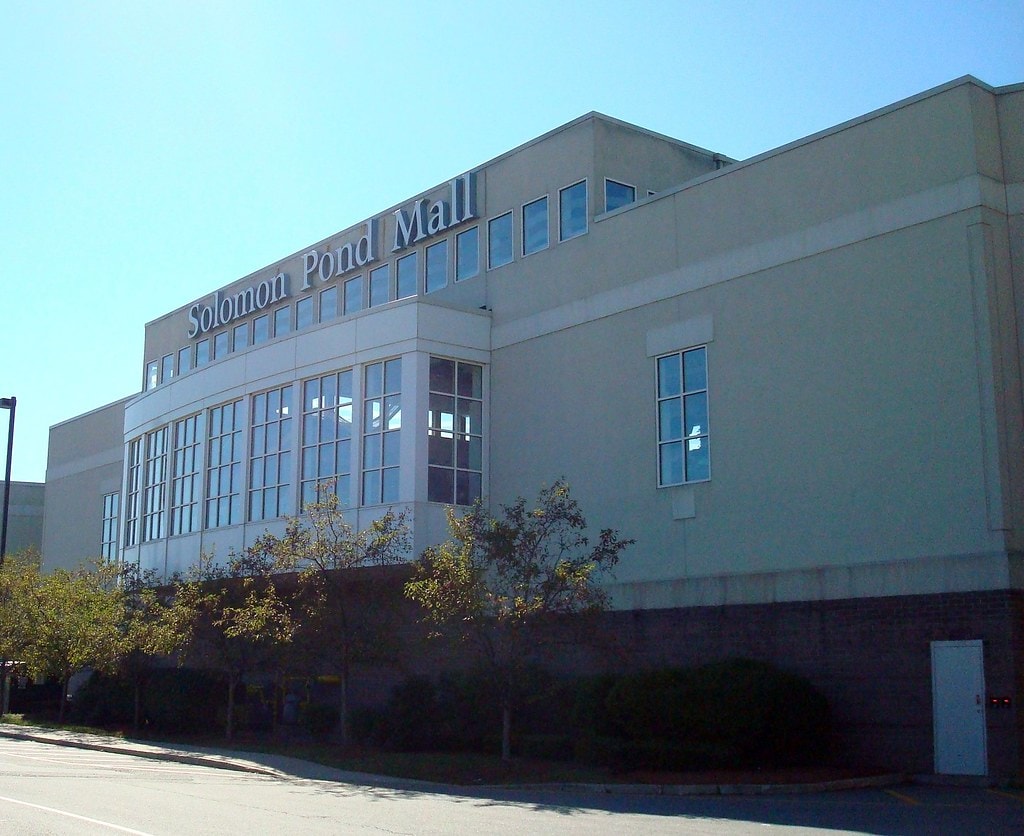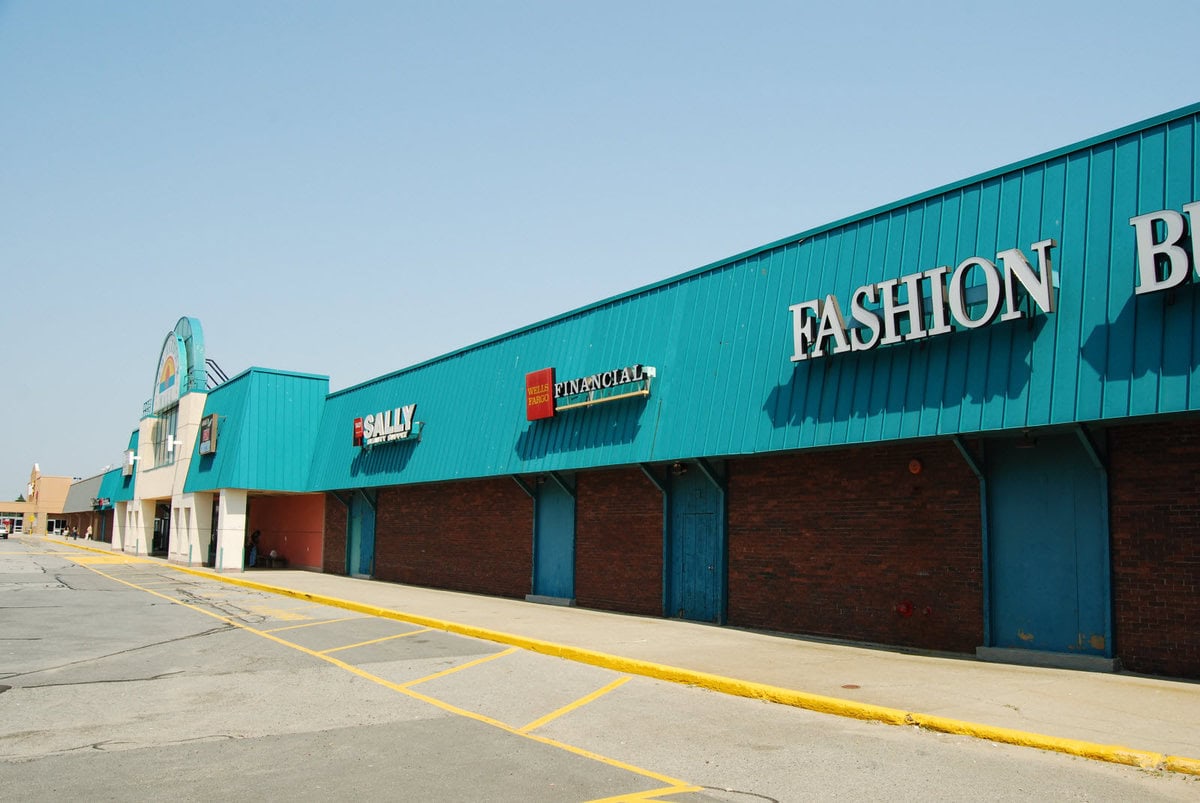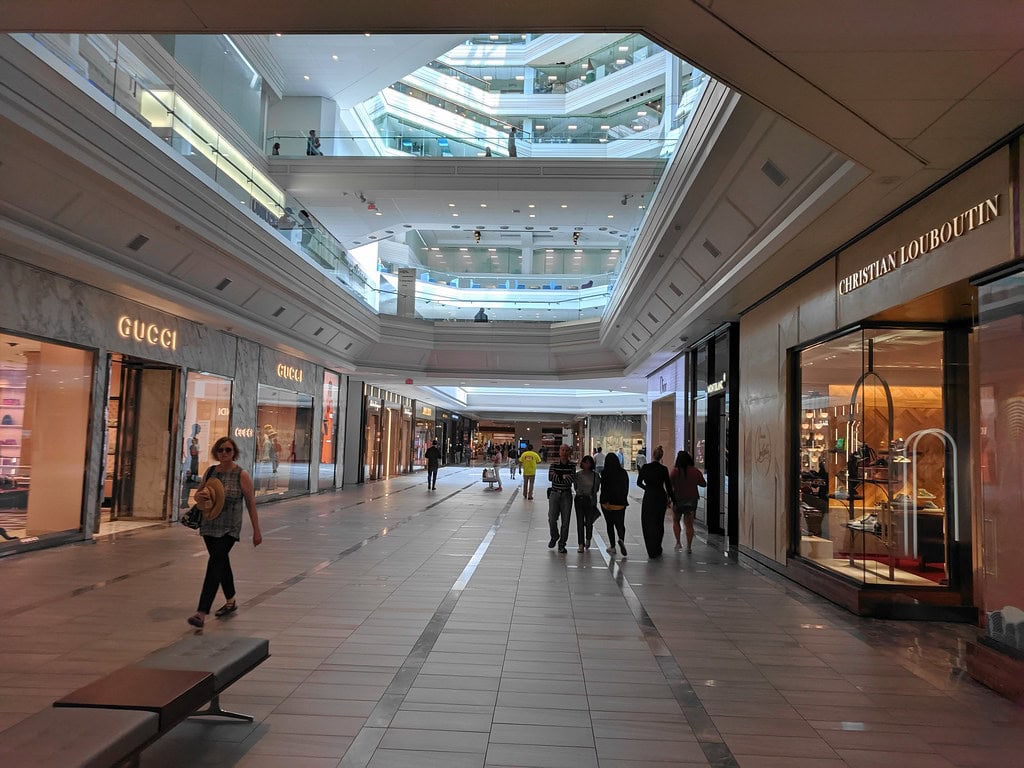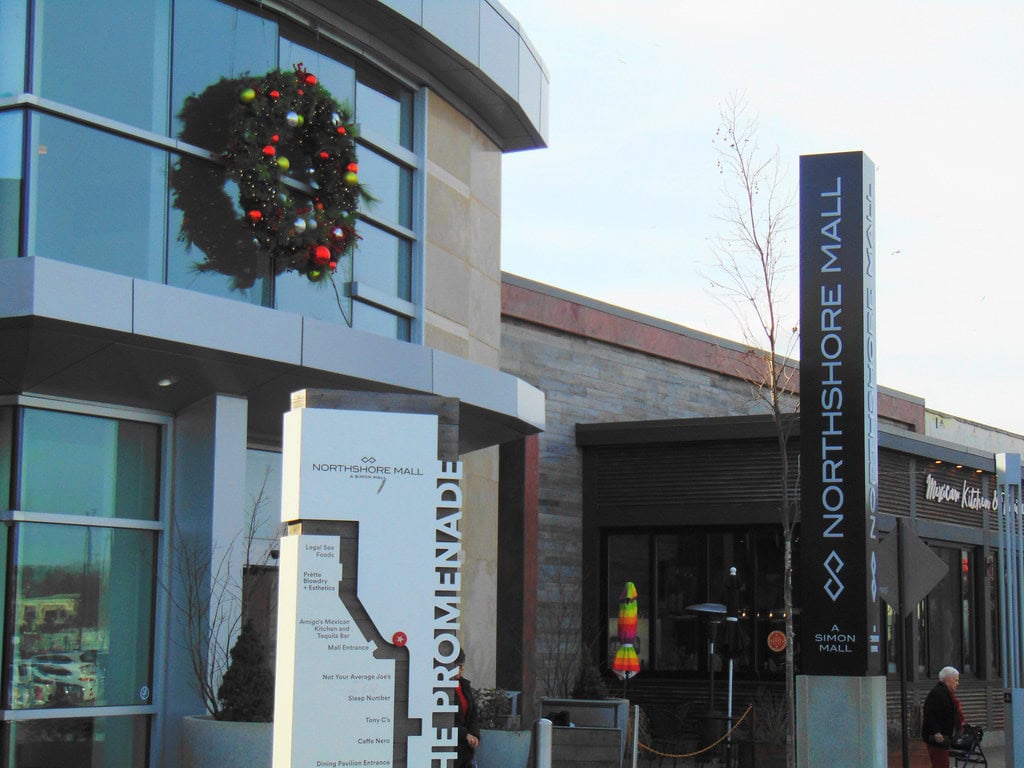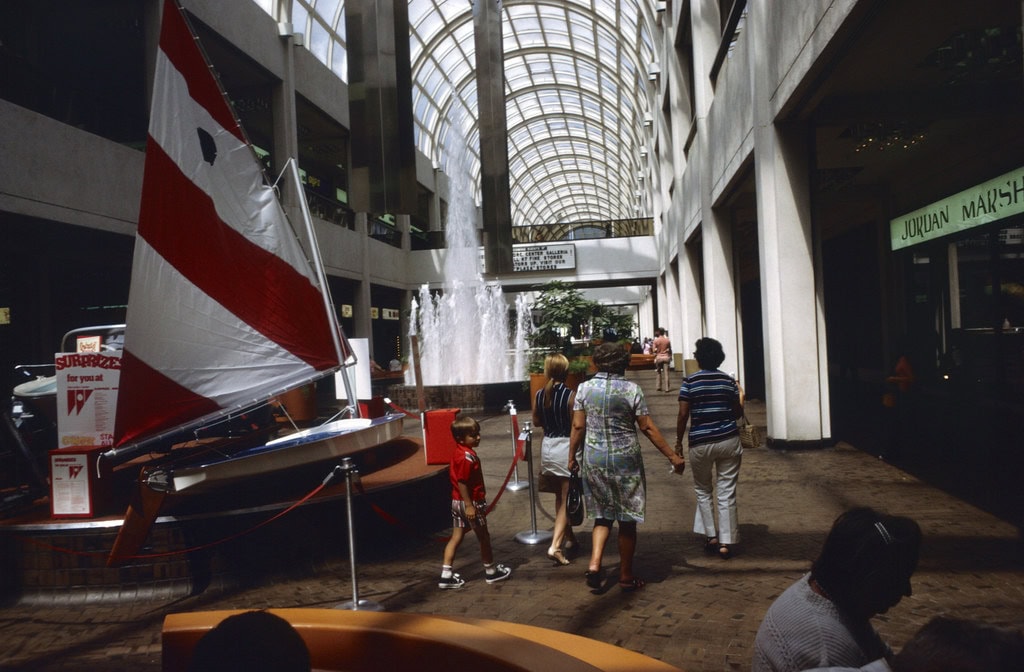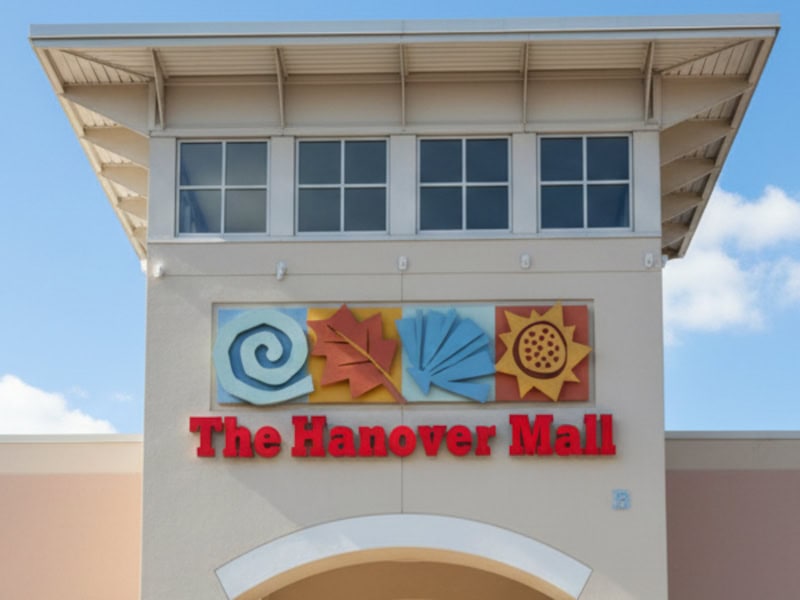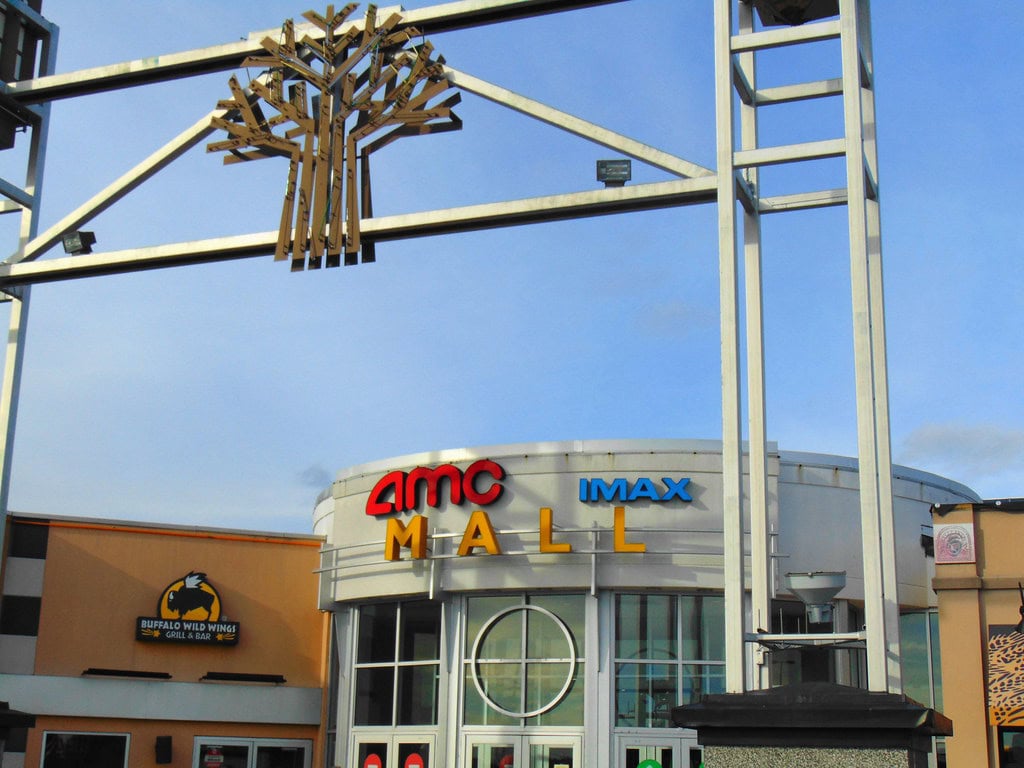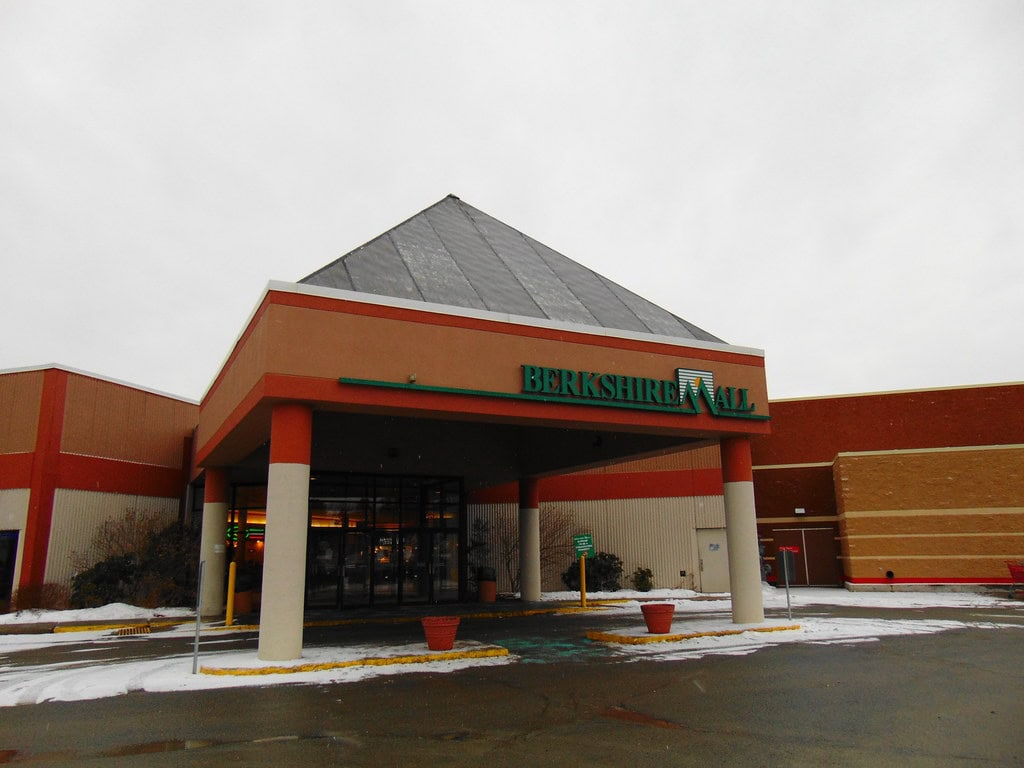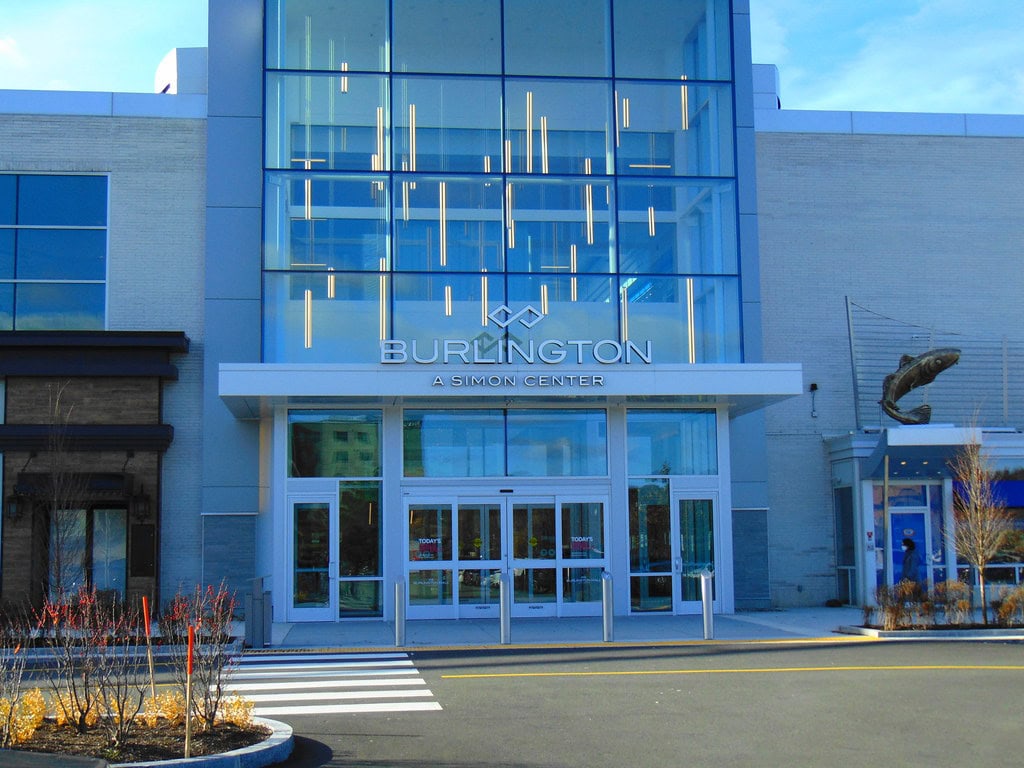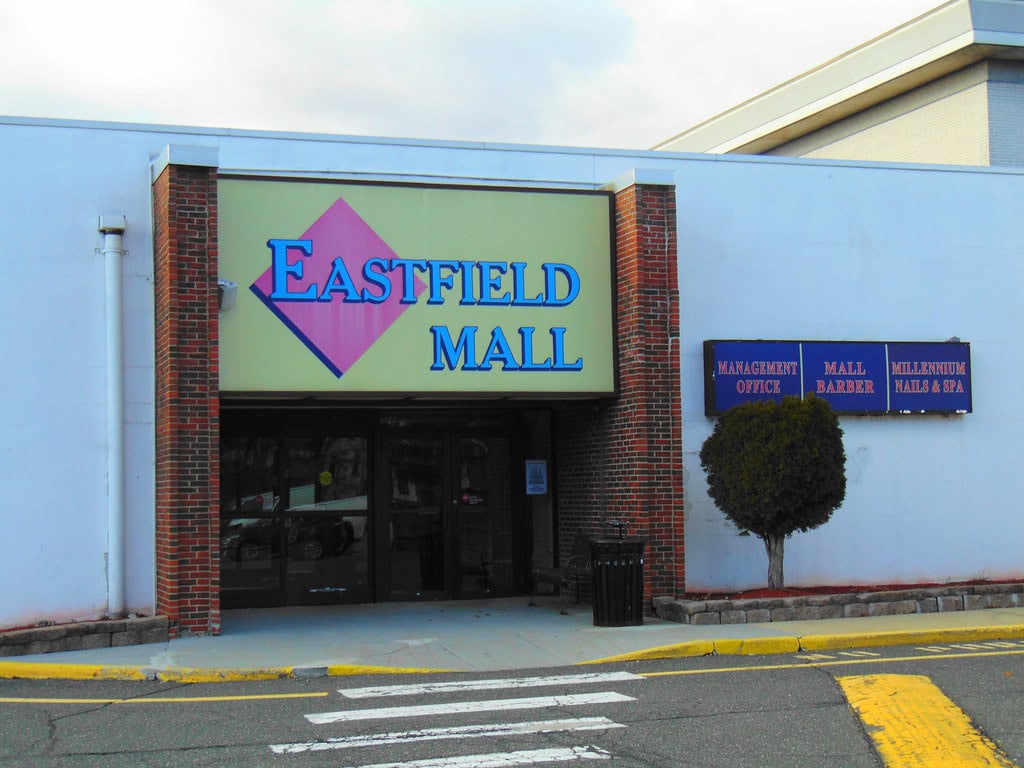Early Retail Ambitions: The Birth of The Shops at Chestnut Hill
Newton, Massachusetts, saw a shift in its shopping scene in the early 1970s with the opening of The Mall at Chestnut Hill.
Developed by C&R Realty, the project aimed to establish an upscale retail hub in the affluent Chestnut Hill neighborhood.
The mall officially opened its doors in 1974, but its foundations were set a year earlier when Bloomingdale's Home Furnishings store debuted in 1973.
The location was carefully chosen - right along Boylston Street (Route 9), a major commercial corridor with easy access for shoppers from Boston and surrounding suburbs.
The original layout featured two levels, built directly into a hillside, allowing street-level access on both floors.
This design made stores highly visible and made it convenient for visitors to move between shopping areas without using stairs or escalators.
The mall launched with a 123,000-square-foot Filene's as a key anchor, replacing an older store at the nearby Chestnut Hill Shopping Center.
Bloomingdale's played a major role in shaping the mall's identity.
The 70,000-square-foot home furnishings store, which opened in 1973, was reconfigured several times to meet changing retail trends.
Unlike other malls in the area, The Mall at Chestnut Hill positioned itself as a high-end shopping destination from the start.
Over the years, it attracted a range of upscale retailers, reinforcing its reputation as a luxury shopping space.
Though retail has changed, The Shops at Chestnut Hill remains a part of Newton's commercial footprint.
Whether browsing high-end boutiques or stopping by Bloomingdale's, it continues to be a recognizable name for shoppers looking for things to do in Boston, MA.
Expansion and Retail Growth in the 1980s
Filene's took the first major step in 1980, adding a third floor to its existing store.
This expansion increased its size to 186,000 square feet, making it one of the largest department stores in the area.
The extra space allowed Filene's to expand its offerings in clothing, accessories, and home goods.
Meanwhile, Bloomingdale's also restructured its presence in the mall. The original home furnishings store added a third floor and reconfigured its layout to introduce a men's department.
This change complemented the separate Bloomingdale's Women's store, which had opened in 1978 across the street at the Chestnut Hill Shopping Center.
With these adjustments, Bloomingdale's was able to serve a broader range of shoppers, solidifying its reputation as the mall's dominant retailer.
The mall's growing status was further cemented when it became a backdrop for Hollywood.
In 1979, Bloomingdale's hosted a film crew for Starting Over, a romantic drama starring Burt Reynolds and Jill Clayburgh.
Scenes shot inside the store brought additional visibility, though the mall itself remained a quiet, upscale shopping space rather than a tourist attraction.
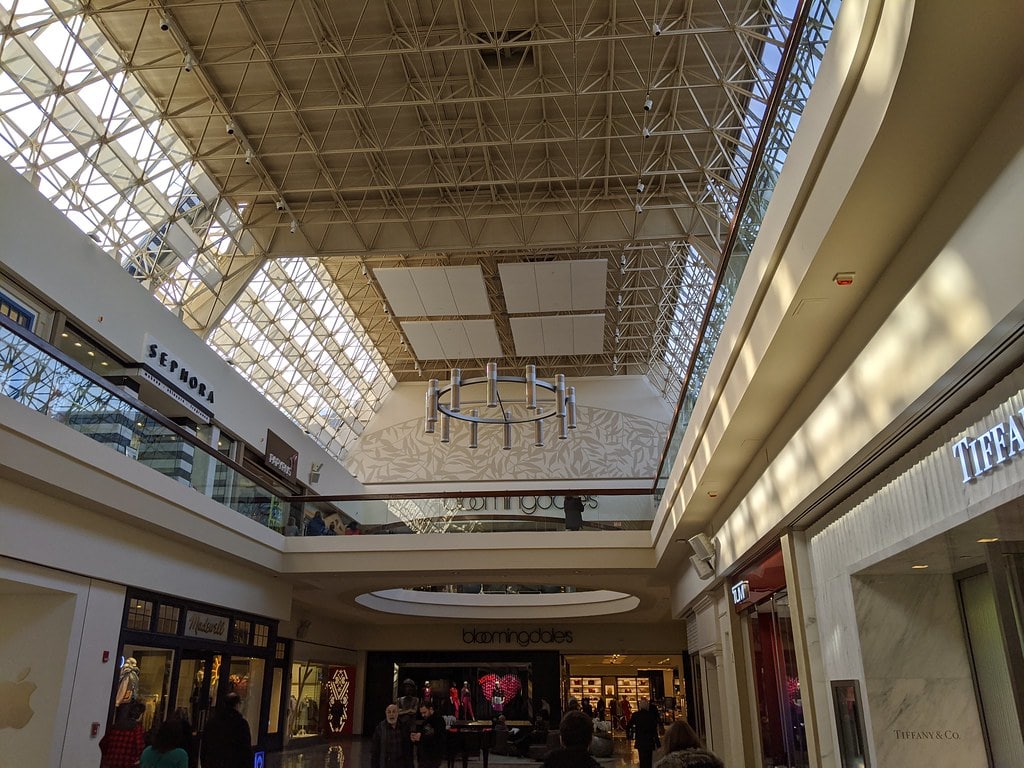
Retail Shifts and Management Changes in the 1990s and Early 2000s
In 1998, S.R. Weiner & Associates took over the long-term lease of the mall property from its original developer, C&R Realty.
This transition marked the beginning of a series of management shifts that would continue into the next decade.
By December 2001, S.R. Weiner transferred management to Rodamco North America, N.V., a real estate investment firm specializing in high-end retail properties.
However, Rodamco's involvement was short-lived. Just months later, the company was broken up, leading Simon Property Group to take over management and acquire an interest in the mall's leasehold.
Simon, already a major player in the shopping center industry, brought new oversight but retained the mall's focus on premium retail.
Chestnut Hill wasn't the only shopping destination evolving in the Boston area.
The opening of new retail developments, including The Atrium Mall - located just a short distance away - added pressure.
The Atrium, which opened in 1989, positioned itself as another luxury shopping destination, creating direct competition for high-end retailers.
Additionally, larger malls like the Natick Mall (later renamed the Natick Collection) underwent expansions that attracted a broader mix of shoppers.
These newer developments offered more space, updated designs, and, in some cases, a wider variety of stores.
Anchor Changes and Property Upgrades in the 2000s
Filene's had been a major presence at the mall since 1974, but its fate was sealed in 2005 when Federated Department Stores, the parent company of Bloomingdale's, acquired the May Department Stores Company.
The deal brought Filene's under Federated's control, making its presence at The Mall at Chestnut Hill redundant.
Federated already owned Bloomingdale's, and rather than keeping both stores in operation, the company decided to eliminate Filene's name.
In March 2006, Filene's at Chestnut Hill closed for good. This left a large, three-story retail space vacant, but Federated had a plan.
Later that year, Bloomingdale's relocated its Women's store from the Chestnut Hill Shopping Center across the street into the former Filene's building.
This move made The Mall at Chestnut Hill the only shopping center in Massachusetts with two Bloomingdale's locations - one for women's fashion and another for men's apparel and home furnishings.
To coincide with Bloomingdale's relocation, Simon Property Group undertook renovations in late 2006.
The updates included new seating areas, upgraded lighting, and a larger, handicapped-accessible elevator in the central atrium.
These upgrades weren't drastic, but they reflected a shift in mall design.
By the early 2010s, management saw an opportunity to reshape the mall's image.
In 2013, the property was rebranded as The Shops at Chestnut Hill, a name that better reflected its collection of luxury retailers and high-end dining options.
The word "mall" had started to carry a less desirable connotation, with many shoppers associating it with larger, more crowded centers.
The new branding emphasized exclusivity and a boutique-like atmosphere.
New Tenants and Retail Adjustments
Apple had operated a store in the mall for years, but by 2016, it had outgrown its original location.
On March 26 of that year, a much larger Apple Store opened inside The Shops at Chestnut Hill, featuring the company's latest retail design elements.
The new Apple Store introduced features like interactive product displays, open-concept layouts, and a focus on customer engagement.
While other retailers struggled with declining in-person sales, Apple continued to prove that a well-designed physical store could still thrive.
Food options at The Shops at Chestnut Hill also evolved during this decade.
One of the most talked-about arrivals was Frank Pepe Pizzeria Napoletana, which opened in December 2015.
Known for its coal-fired pizzas, Frank Pepe had a strong reputation in Connecticut, but this was its first Massachusetts location.
Shortly after, Simon Property Group added a Starbucks inside the mall, further expanding its quick-service offerings.
While The Shops at Chestnut Hill had always prioritized retail, these additions reflected a larger industry trend - malls needed strong dining options to keep customers coming back.
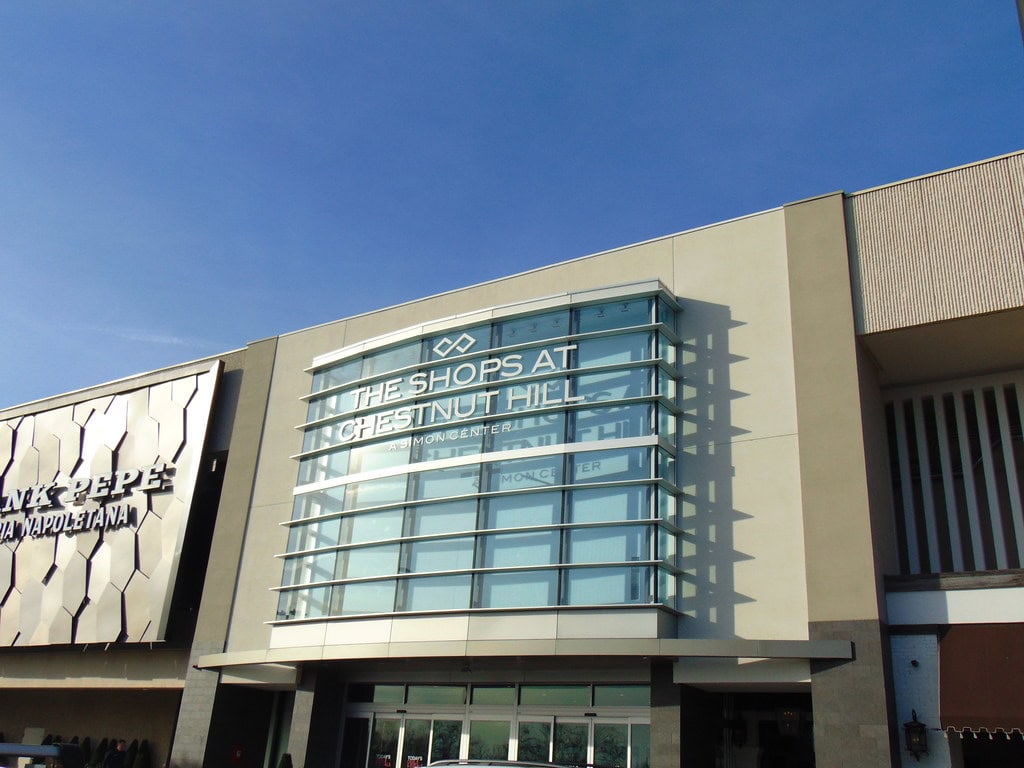
In the 2020s, The Shops at Chestnut Hill will continue to offer an upscale shopping experience with a variety of luxury retailers and dining options.
Anchored by the state's only Bloomingdale's, the center features over 50 specialty stores, including Apple, Uniqlo, Michael Kors, Tiffany & Co., and Coach.
Recent additions like Sephora and The Friendly Toast enhance the mall's appeal, providing visitors with diverse shopping and dining choices.
Amenities such as complimentary parking, Wi-Fi, lounge seating, and EV charging stations further contribute to a comfortable and convenient visit.

